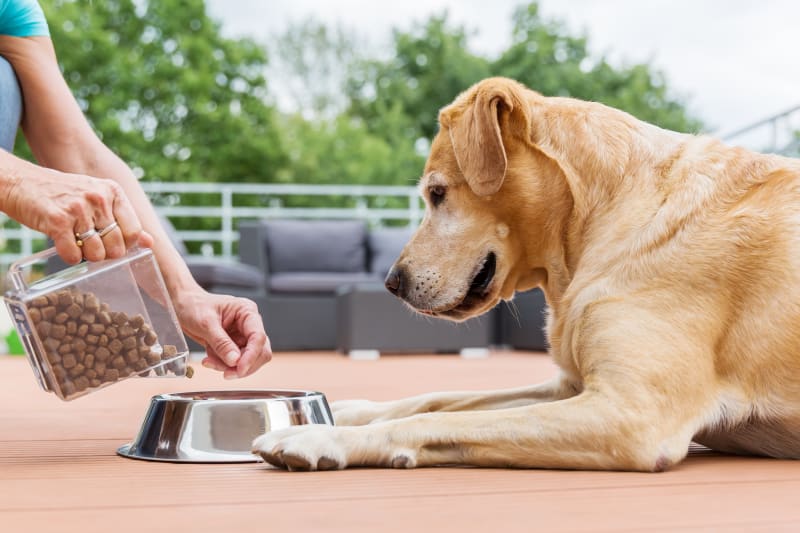As dog owners, we want to ensure our furry friends lead healthy and happy lives. With so many pet food options available, it’s essential to understand what ingredients are best for our dogs. One common question is whether dogs can tolerate gluten, a protein found in grains like wheat and barley. While many dogs can digest gluten without any problems, some may experience sensitivities or intolerances that can affect their health.
In this blog, we’ll explore what gluten intolerance looks like in dogs, the symptoms to watch for, and what steps you can take if you suspect your dog may have a problem with gluten. Understanding your dog’s dietary needs is key to keeping them comfortable and healthy!
What Is Gluten Intolerance?
Gluten intolerance occurs when a dog’s digestive system has trouble processing gluten. This can lead to various health problems. It’s important to note that gluten intolerance is different from a food allergy, which is more serious.
Can Dogs Eat Gluten?
Yes, dogs can generally eat gluten, which is found in grains like wheat, barley, and rye. However, some dogs may have a gluten intolerance or sensitivity, which can cause health issues.
How to Tell if Your Dog Has a Gluten Sensitivity
Identifying gluten sensitivity in dogs can be challenging, as symptoms can often resemble other health issues.
1. Digestive Problems
– Diarrhea: Frequent, loose stools can indicate intolerance.
– Vomiting: If your dog is vomiting regularly after meals, it may be a sign of a digestive issue.
– Gas and Bloating: Excessive gas or a swollen belly can suggest trouble digesting gluten.
2. Skin Issues
– Itchy Skin: Scratching, licking, or biting at the skin can indicate an allergic reaction.
– Rashes or Hot Spots: Look for inflamed areas or red patches on the skin.
3. Weight Changes
– Unexplained Weight Loss: If your dog is losing weight without any change in diet or activity level, it might be related to gluten intolerance.
– Difficulty Gaining Weight: Dogs may struggle to gain weight if their digestive system isn’t functioning properly.
4. Behavior Changes
– Lethargy: If your dog seems unusually tired or less playful, it could be a sign of discomfort.
– Mood Swings: Changes in behavior, such as increased irritability, may indicate an underlying issue.
5. Food Aversion
– If your dog suddenly refuses to eat their usual food, it might be because they’re experiencing discomfort after eating.
What to Do If You Suspect Gluten Sensitivity
– Consult Your Veterinarian: If you notice any of these symptoms, it’s essential to speak with your vet. They can help diagnose the issue and recommend dietary changes.
– Try a Grain-Free Diet: Your vet may suggest switching to a grain-free dog food to see if your dog’s symptoms improve.
– Monitor Your Dog: Keep a journal of your dog’s symptoms and diet to help your vet make an informed diagnosis.
Signs of Gluten Intolerance in Dogs
If you suspect your dog might be intolerant to gluten, watch for these symptoms:
1. Digestive Issues: This can include diarrhea, vomiting, or gas. If your dog has upset stomach regularly after eating, it might be a sign.
2. Skin Problems: Look for itchy skin, rashes, or hot spots. Some dogs develop allergic reactions that affect their skin.
3. Weight Changes: If your dog is losing weight unexpectedly or is not gaining weight despite eating, gluten intolerance could be a factor.
4. Behavior Changes: If your dog seems more tired than usual or has changes in mood, it could be related to what they’re eating.
What to Do if You Suspect Intolerance
– Consult Your Vet: If you notice any of these symptoms, it’s best to talk to your veterinarian. They can help determine if gluten is the issue.
– Try a Grain-Free Diet: Your vet may suggest switching to a grain-free diet to see if your dog feels better.
Are Certain Dog Breeds More Prone to Gluten Sensitivity?
While gluten sensitivity can affect any dog, certain breeds may be more prone to developing food sensitivities, including gluten intolerance. Here are some breeds that are commonly associated with a higher risk:
1. Wheaten Terrier
- Soft Coated Wheaten Terriers are known to have a higher incidence of food allergies and sensitivities, including gluten intolerance.
2. Collies
- Both Rough and Smooth Collies can be prone to various food sensitivities, including gluten.
3. Irish Setter
- Irish Setters may have a genetic predisposition to food allergies, making them more susceptible to gluten-related issues.
4. German Shepherd
- German Shepherds can suffer from various gastrointestinal issues and may have a higher risk of food intolerances, including gluten.
5. Cocker Spaniel
- Cocker Spaniels may also experience food allergies, which can include reactions to gluten.
6. Labrador Retriever
- Labradors are known for their tendency to develop allergies, and some may react negatively to gluten.
Understanding Breed Sensitivity
It’s essential to note that while certain breeds may be more likely to experience gluten sensitivity, individual dogs can vary widely. Factors such as genetics, diet, and overall health play significant roles.
What to Do If You Suspect Sensitivity
If you have a breed that may be prone to gluten sensitivity, it’s wise to monitor their diet and watch for symptoms. Consult with your veterinarian for guidance on the best diet for your dog and consider testing for food allergies if you notice any concerning signs.
Conclusion
While many dogs can handle gluten without problems, some may have sensitivities. Keep an eye on your dog’s health and consult your vet if you have concerns.




